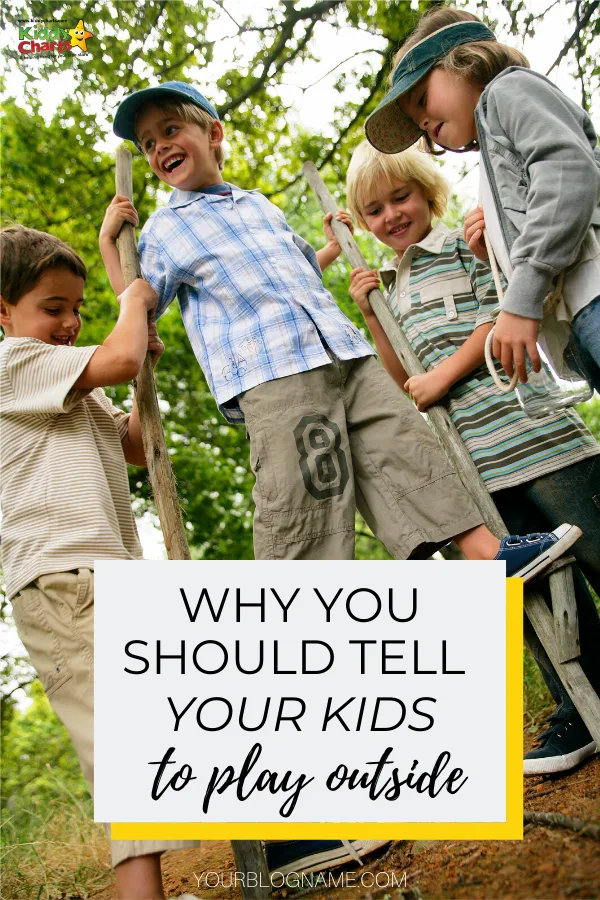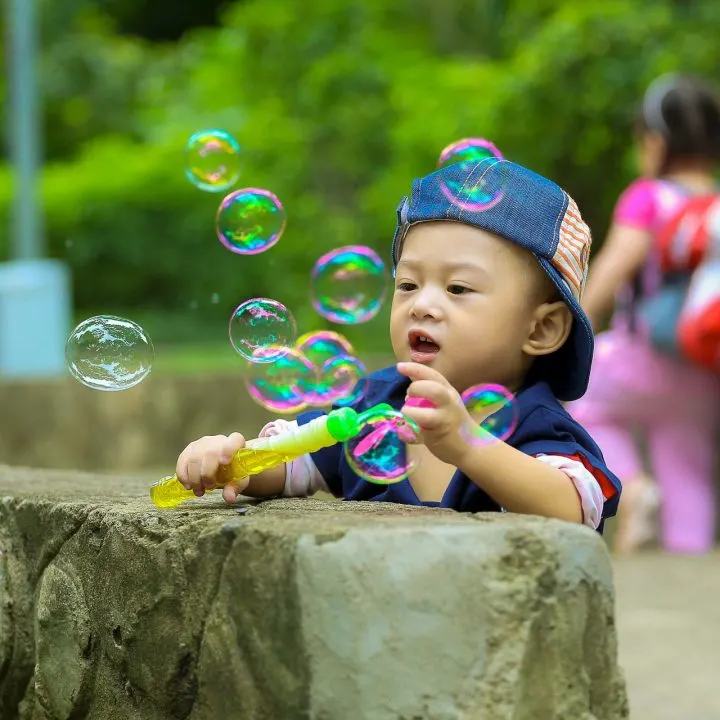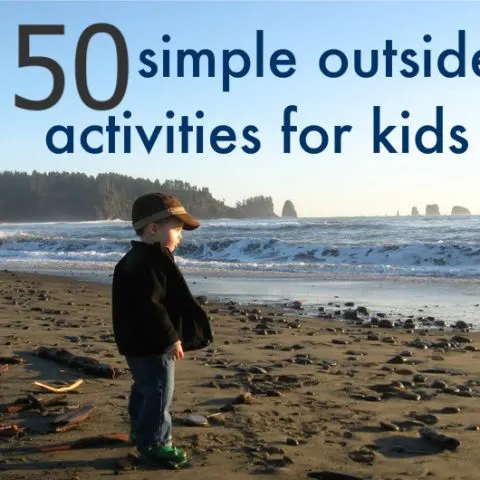Play is a highly important part of a child’s life. Recently the dynamics of childhood have changed as fewer kids make the choice to play outside. The quality of play itself has changed as well and children don’t play how former generations did.
Recent studies tell us that the decline of children’s play time affects their cognitive and emotional development. A study conducted by University of Michigan researchers found that the average school-age child had 40 percent of the day for free time – defined as the time left over after eating, studying, sleeping, and engaging in free or unstructured activities. By 1997, the figure decreased to 25 percent.

Similarly, a study asked more than 800 mothers about the way they played when they were young. Out of those surveyed, 70 percent reported that they used to play outdoors every day as children. This is compared with only 31 percent of their own children. Which suggests that children don’t play like their parents did!
Getting kids to play outside
Outdoor play is a normal experience for children but it has now become a thing of the past. Every child is wired to play outside. By the turn of the 21st century, however, change in traditional play has accelerated. Outdoor playing has become threatened in modern societies.
What has changed in child’s play?
Academic pressures, parental concerns regarding children’s safety, instant access to information via the Internet, and increased use of indoor high-tech games have been barriers to kids’ physical activity.
Even the opportunity to play outdoors where the playground equipment is safe and well-maintained has been scarce and limited. Playgrounds should be safe and open and where grownups are not a dominant population.
Concerns about affluent and secure playgrounds reduce children’s play opportunities. Safety concerns of parents are a factor. Unfortunately, this leads to the ‘domestication’ of play.
The Value Of Play
Here are a few reasons why parents should tell their kids to play outside:
Play encourages physical development and good health.
According to The Australian Healthy Eating and Physical Activity Guidelines for Early Childhood Settings, “Playing and being physically active is an important part of life for all children. The early development of good habits may lead to healthy behaviours that will last into later years, and regular physical activity in early childhood can impact on immediate and long-term health outcomes.”
Physical play helps develop children’s motor skills, strength, coordination, and agility. There are growing concerns on children’s obesity in Western countries, and physical activity has become increasingly important in promoting play.
Play stimulates brain development and promotes problem-solving skills.
Play often involves problem solving which is important to learning and intellectual development. The very nature of play allows more opportunities for children to deal with real life problems. It sparks creativity, thus allowing experimentation. This happens especially when a child experiences something incomprehensible and he or she feels a need to work it through.
Play develops language skills in children.
Children could imitate adult speech patterns. They can experiment with words, sounds, and sequences by taking on different roles. Through play, they can show their perspective of the adult world.
Play helps children get along with others.
Outdoor play encourages children to collaborate and interact with peers. They can choose roles and suggest ideas. Children learn how to exert control over themselves, make decisions, interact and negotiate with friends, and follow the rules. Children can learn by observing and imitating others.
Play is a fun activity that brings great pleasure to children.
Alvin Rosenfeld, a child psychiatrist and author of the book “The Over-Scheduled Child: Avoiding the Hyper-Parenting Trap” believes that play is joyful and emotionally nourishing. Free play has a role in the development of emotionally healthy children where they can control their engagement level.
Did you know play deprivation can lead to depression?
More attention should be focused on the benefits that happen when kids play outside. Children’s involvement in play activities plays a significant role for parents for the benefit of their child’s emotional, social, cognitive, and physical growth.
If you’re enjoying this post please sign up to our newsletter. We would love to have you!
If you are looking for more ideas for screen-free and outdoor play here are some suggestions for you from KiddyCharts and other parenting bloggers around:
More Ideas for Outdoor Play
We hope this post has helped you understand a little bit more about the benefits of outdoor play. If you have any other ideas or tips feel free to leave a comment below.
Thank you for reading our post and we hope to see you here for the next one!
Helen








Thaisafety1991
Tuesday 14th of April 2015
yeah, kids always like to play and we should have watch out all the time. and sometime play with them make a quality time family too.
Kathy
Monday 9th of March 2015
Part of the problem is apartment living. Having a house and garden makes it much easier for kids to play outside without the parents worrying about their safety.
Kathy
Monday 9th of March 2015
Part of the problem is apartment living in the city. Having a house with a garden makes it much easier for kids to play outside without parents worrying about their safety.
Carolin
Monday 26th of January 2015
Amy loves being outdoors and exploring. It teaches her so much and she really needs fresh air to be balanced. If she stays in just one day, her energy levels go through the roof...
Thanks for linking up with Monday Parenting Pin It Party x